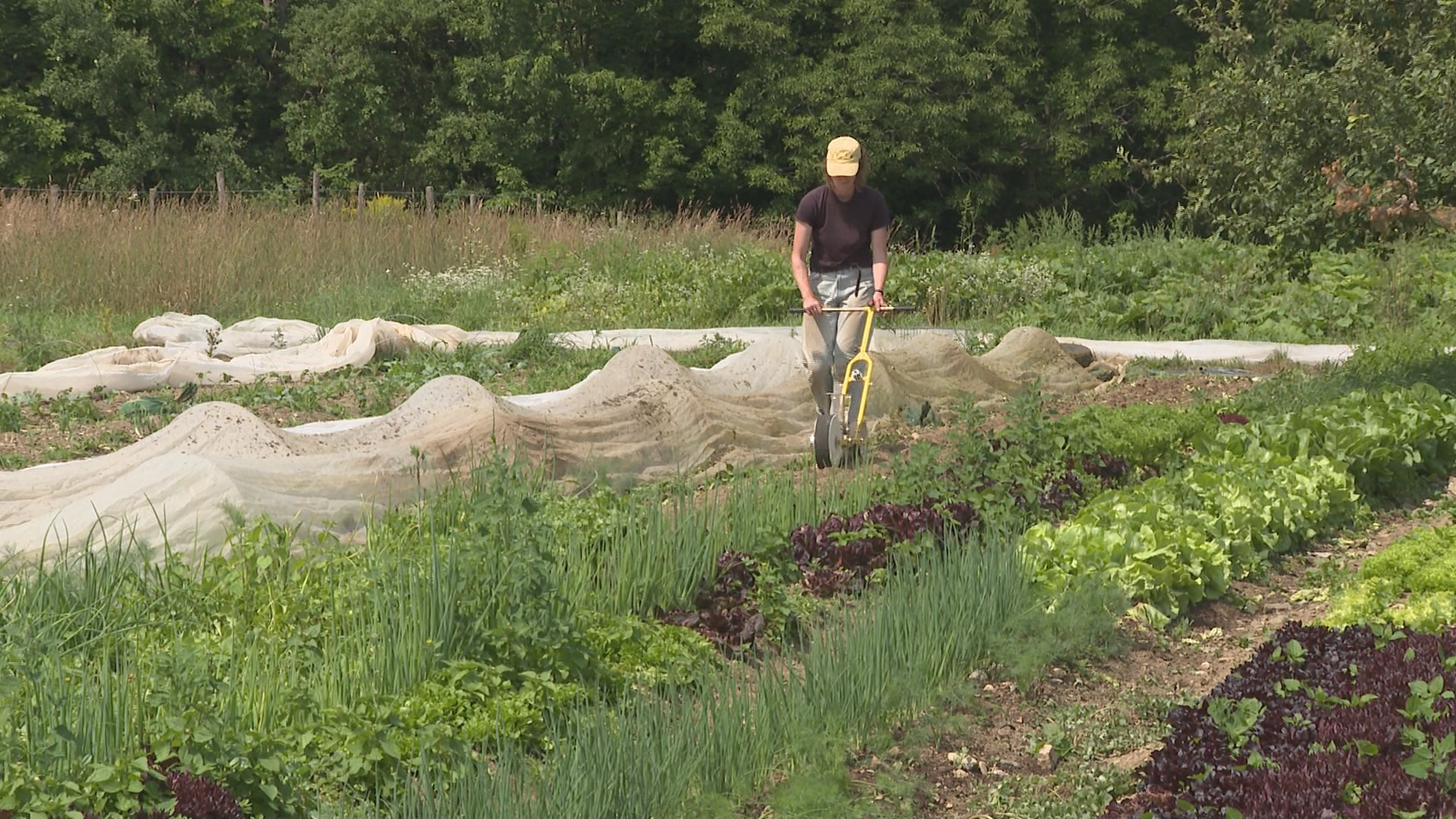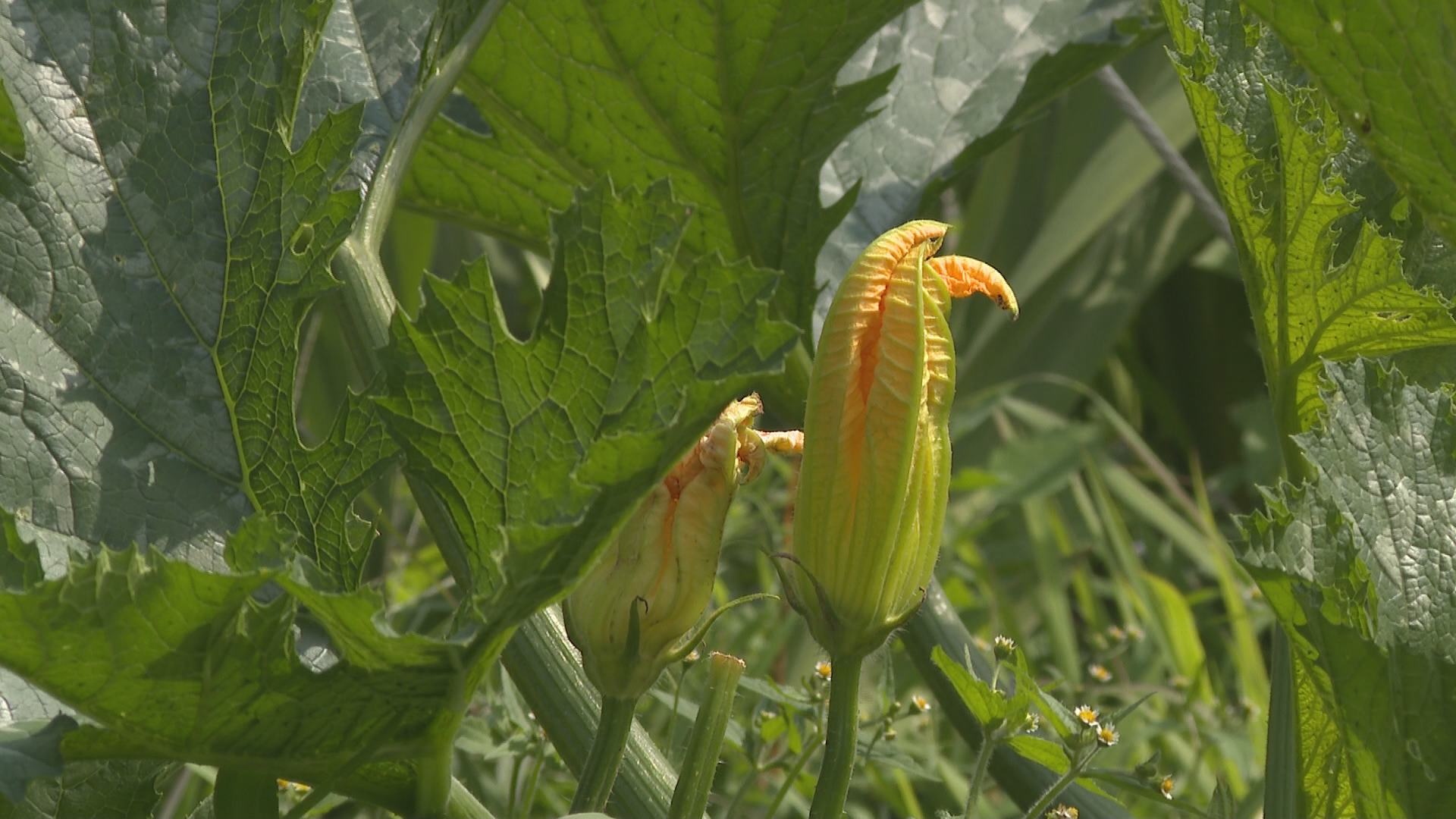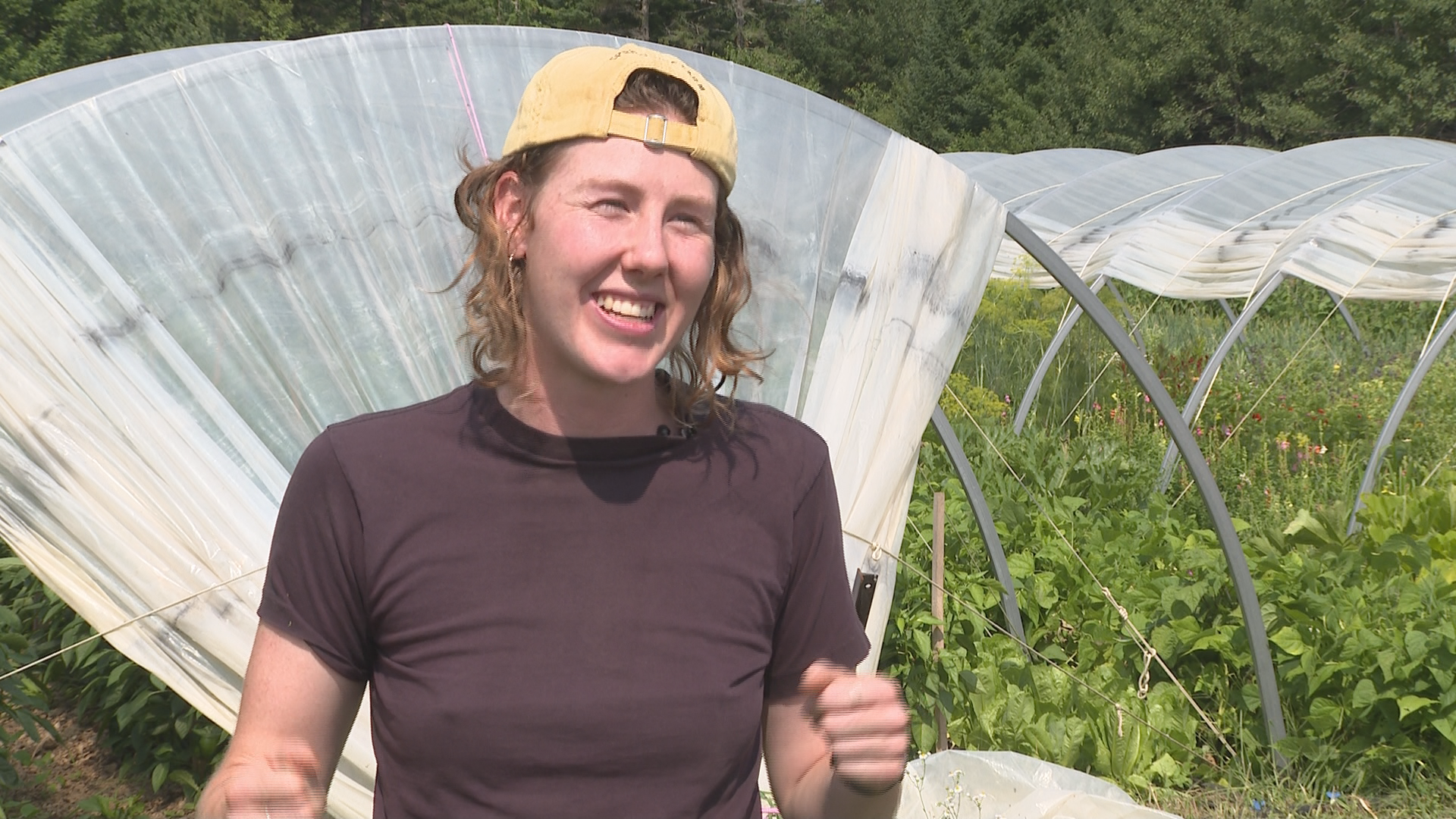Nova Scotia farmers know the harsh reality of putting ‘all your eggs in one basket’ when it comes to growing crops in a constantly changing climate.

First-generation farmer Rebecca MacInnis is the owner of Spring Tide Farm, which rests on two acres of land in Lapland, N.S.
The farm provides vegetables to about 100 local families weekly, but since beginning operations five years ago, MacInnis said they’ve been met with constant challenges.
“It’s these things that are kind of the ‘one in 100 years’ events that are now happening every year, every other year,” MacInnis said.
“Even hurricane season, it used to be an every now and again we’d get some rain and wind in September, and now it’s like I’m already planning for which of these tunnels I’ll have to take down, which crops I’ll have to sacrifice. Because I know we’ll have a hurricane this year.”
Last growing season, in 2023, historic rainfalls in the province had a catastrophic impact on crop yields, which ended up negatively affecting farmers and the resiliency of the local food system.

Get daily National news
“The late frosts, it’s the flash flooding, it’s the wildfires, it’s the two-week-long heat waves. It’s the really, really intense weather that can really just throw off an entire season,” MacInnis said.
For grower Raphaelle Maruchitch, the climate crisis has also made the job more physically demanding — but taking time off isn’t always an option.
“If we lose a half a day or full day of work, it then has a lot of repercussions and it’s less money for us,” Maruchitch said. “So, we have no choice but to work through that.”
Maruchitch first started farming in Quebec before making the move to Atlantic Canada four years ago. She was excited for cooler weather and a less extreme growing season, but was surprised to find out Nova Scotia is no more forgiving.
“We’ve been having such warm days, I was actually asking myself, ‘Am I going to be able to do this job as long as my work life is going to be?’” Maruchitch said. “And it was the first time I was asking myself the question, just because it’s so hard on the body.”
According to Maruchitch, you need to be passionate to be a farmer as it is, but the climate crisis has made the work disheartening.
“This is just adding something extremely hard, because it’s already precarious, you’re not making a lot of money, and this is just making it even harder — impossible,” she says.
During this summer’s heat wave, MacInnis said, they were forced to make changes to their work schedule.
“It’s too hot, we can’t hurt ourselves, it’s not worth it,” she said. “But then again, that’s in a position of privilege — not all farmers, or farm workers specifically, have that right to access time off.”
According to MacInnis, migrant farm workers are especially affected by the lack of occupational safety measures on farms in Canada, and climate change is only adding to their myriad existing challenges.
The discouraging reality has MacInnis questioning the future of sustainable farming.
She wants to see proactive climate action taken to help put the food system back in the hands of growers, producers and consumers.
“If we are thinking about a future that includes food sovereignty, it means growing food here where we are, it means growing food that thrives in this region, it means supporting livelihoods,” MacInnis said.
“It means feeding our communities and letting them have a say in what their food system looks like.”












Comments
Want to discuss? Please read our Commenting Policy first.